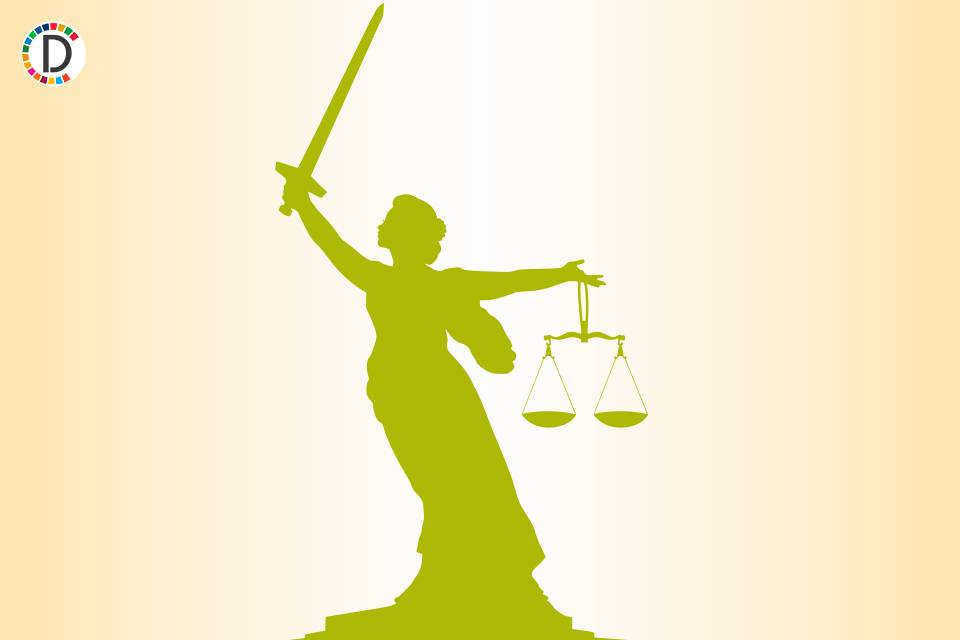GST council important focal point to foster federalism and democracy: SC

- Country:
- India
The Supreme Court Thursday said the GST Council is not merely a constitutional body restricted to the indirect tax system in India but is also an important focal point to foster federalism and democracy, where states can use various forms of contestation, if they disagree with the decision of the Centre.
The top court said that the Constitution Amendment Act 2016 alters the legislative distribution between the Centre and the state on indirect taxation by providing Parliament and state legislatures with 'simultaneous powers' and no provision for repugnancy.
A bench of justices D Y Chandrachud, Surya Kant and Vikram Nath said that the Indian Constitution has sometimes been described as quasi-federal or a Constitution with a 'centralising drift' where the Union is granted a larger share of the power. ''Merely because a few provisions of the Constitution provide the Union with a greater share of power, the provisions in which the federal units are envisaged to possess equal power cannot be construed in favour of the Union. The Union and the States have a simultaneous power to legislate on GST. The GST Council has the power to make recommendations on a wide range of subjects relating to GST,'' it said. The bench said that since the Constitution does not envisage a repugnancy provision to resolve inconsistencies between the Central and state laws on GST, the GST Council must ideally function, as provided by Article 279A(6), in a harmonised manner to reach a workable fiscal model through cooperation and collaboration.
''Therefore, the states can use various forms of contestation if they disagree with the decision of the Centre. Such forms of contestation are also within the framework of Indian federalism. The GST Council is not merely a constitutional body restricted to the indirect tax system in India but is also an important focal point to foster federalism and democracy,'' it said.
The bench said that earlier the exclusive powers held by the states and the Centre on matters of taxation was regarded as an important feature of India's federal polity. ''The Constitution Amendment Act 2016 alters the legislative distribution between the Centre and the state on indirect taxation by providing Parliament and state legislatures with 'simultaneous powers' and no provision for repugnancy. Therefore, according to Article 246A, both Parliament and the State Legislature possess equal power to legislate on aspects of GST,'' the bench said. It said that Article 246A vests Parliament and the State Legislatures with a unique, simultaneous law-making power on GST and it is in this context that the role of the GST Council gains significance. ''The recommendations of the GST Council are not based on a unanimous decision but on a three-fourth majority of the members present and voting, where the Union's vote counts as one-third, while the states' votes have a weightage of two-thirds of the total votes cast,'' it said. It said that there are two significant attributions of the voting system in the GST Council as it has an unequal voting structure, where the states collectively have a two-third voting share and the Union has a one-third voting share and since India has a multi-party system, it is possible that the party in power at the Centre may or may not be in power in various states. ''Therefore, the GST Council is not only an avenue for the exercise of cooperative federalism but also for political contestation across party lines. Thus, the discussions in the GST Council impact both federalism and democracy,'' it said, adding that the constitutional design of the Constitution Amendment Act 2016 introduces unique features of federalism.
''Article 246A treats the Centre and States as equal units by conferring a simultaneous power of enacting law on GST. Article 279A in constituting the GST Council envisions that neither the Centre nor the states can act independent of the other,'' it said.
The bench said that the dual federalism model or the autonomy model views the constituting units of the Centre and states as autonomous, independent and competing units.
''If the states have been conferred lesser power they can still resist the mandates of the Union by using different forms of political contestation as permitted by constitutional design. Such contestation furthers both the principle of federalism and democracy. When the federal units are vested with unequal power, the collaboration between them is not necessarily cooperative. Harmonised decision thrives not just on cooperation but also on contestation. Indian federalism is a dialogue in which the States and the Centre constantly engage in conversations,'' the bench said.
The top court's ruling came on a batch of appeals including of Centre's as it upheld a Gujarat High Court verdict to quash the levy of Integrated GST (IGST) on the importers on ocean freight under reverse charge.
The high court had held that no tax can be levied under the IGST on the ocean freight for the services provided by a person located in non-taxable territory by way of transportation of goods by a vessel from a place outside India up to the customs station in India.
It had quashed the 2017 notification of the Centre by which IGST of five per cent would be levied on the services of transport of goods in a vessel.
(This story has not been edited by Devdiscourse staff and is auto-generated from a syndicated feed.)
ALSO READ
US respects India's right to set visa policy
India begins voting in second phase of giant election as Modi vs Gandhi campaign heats up
Tragic Shooting: Police Fatally Wound Indian-origin Man During Apprehension Attempt
Indian Archers Jyothi, Verma Secure Compound Mixed Team Final Spot, Aiming for Quadruple Gold at World Cup
UNGA President: India's Digital Public Infrastructure Empowers Equal Opportunities










